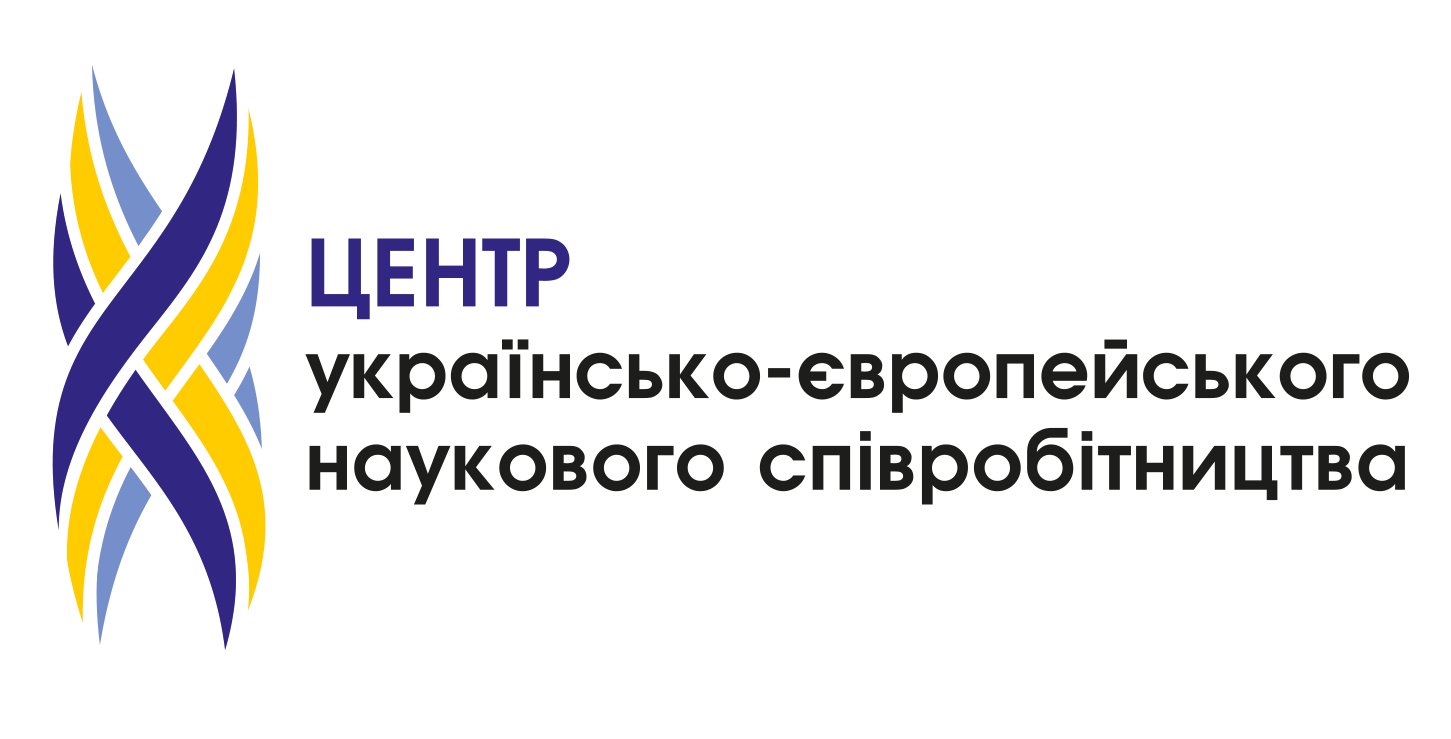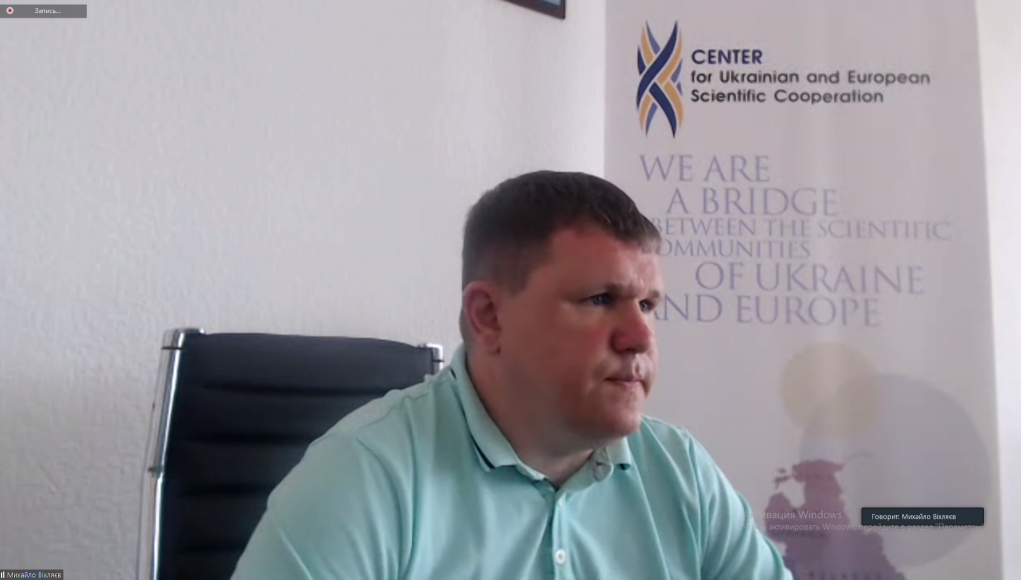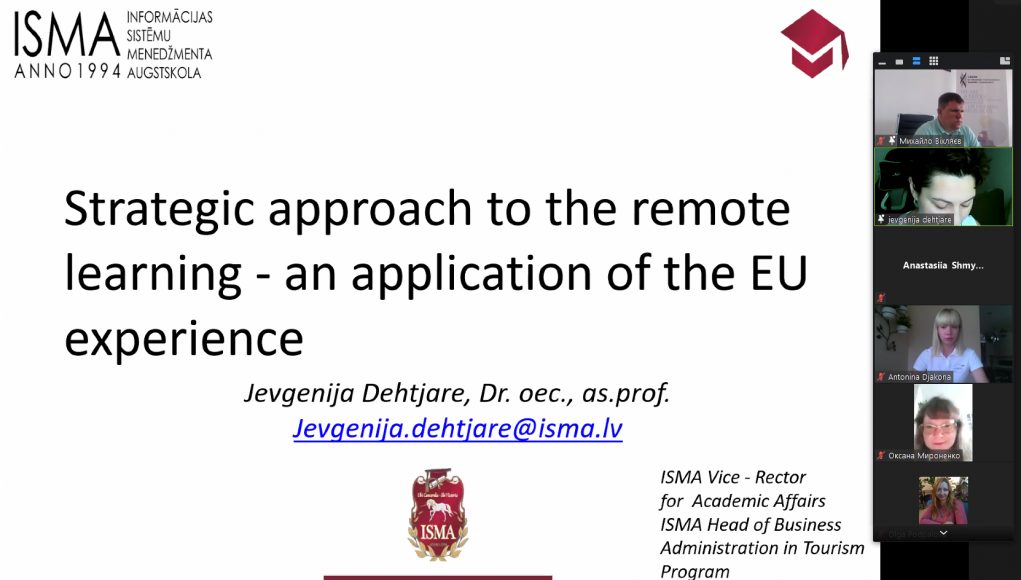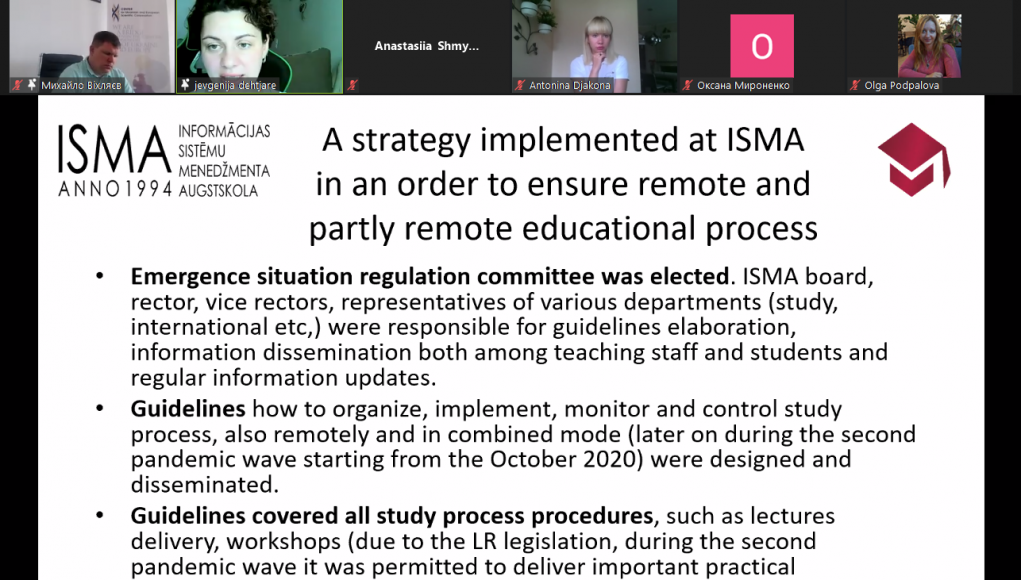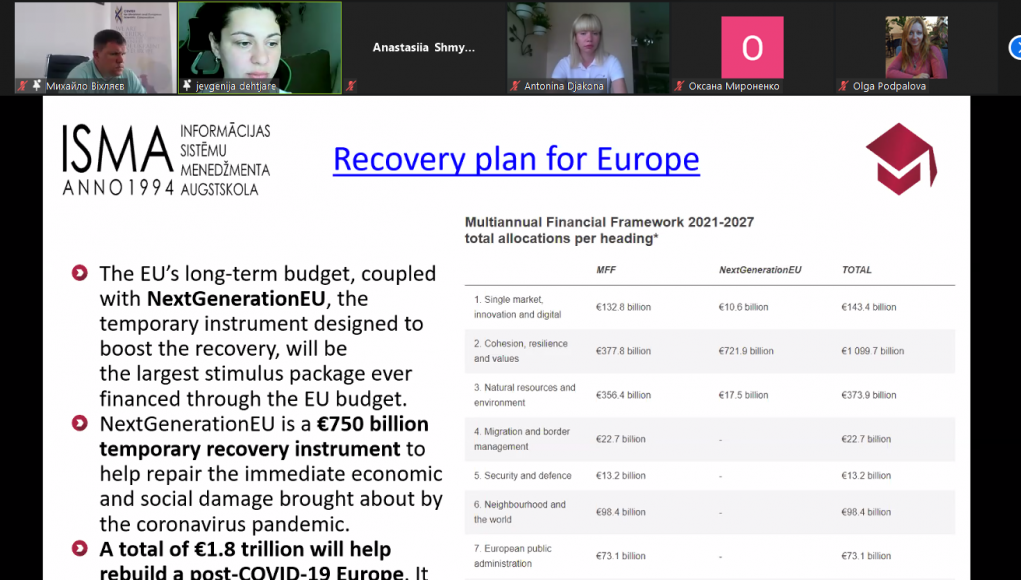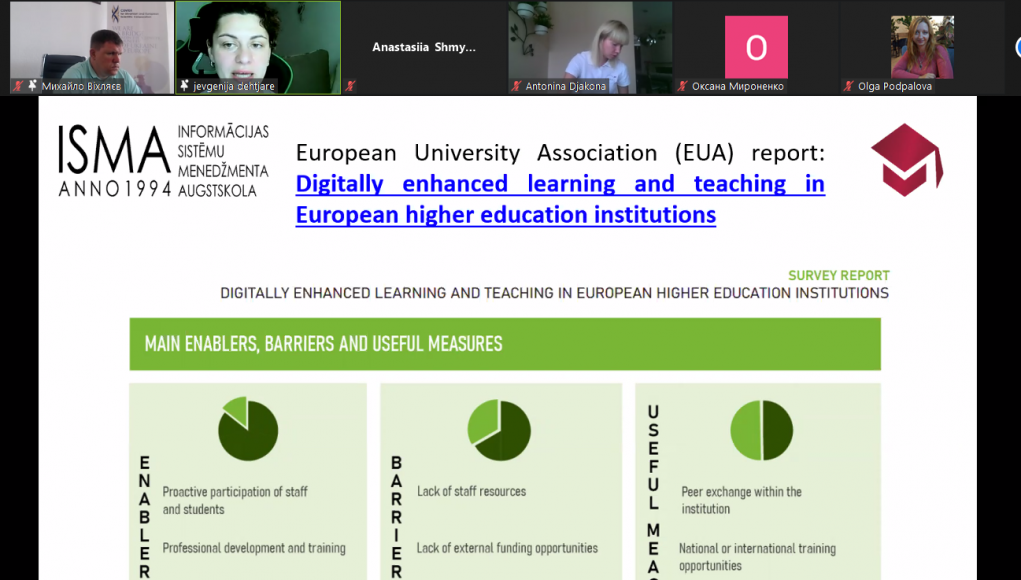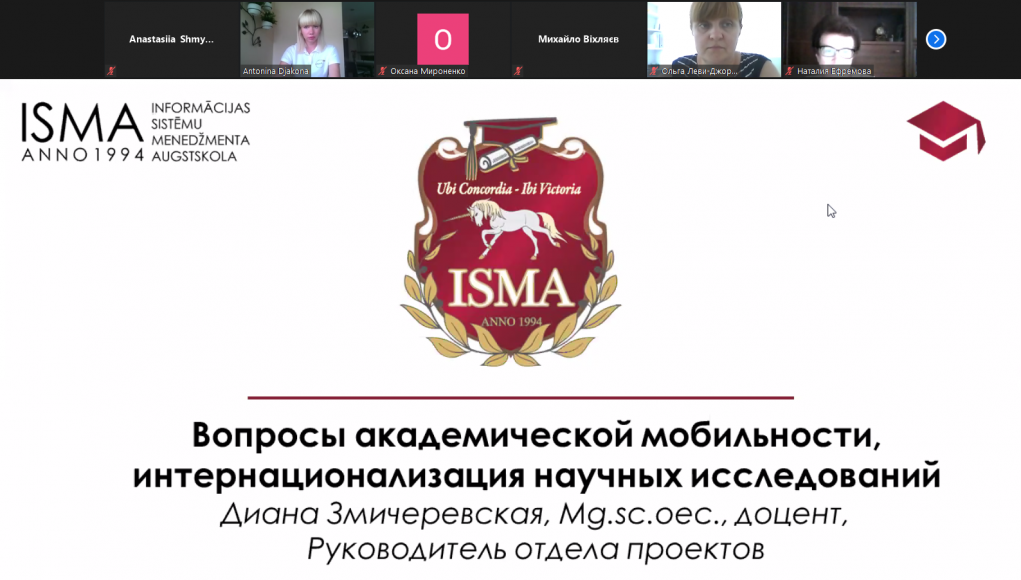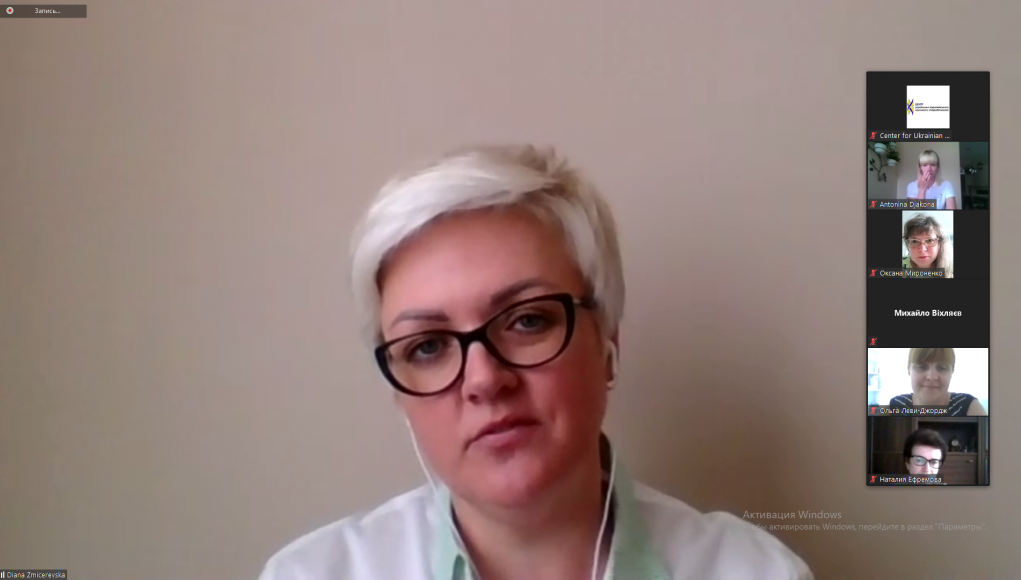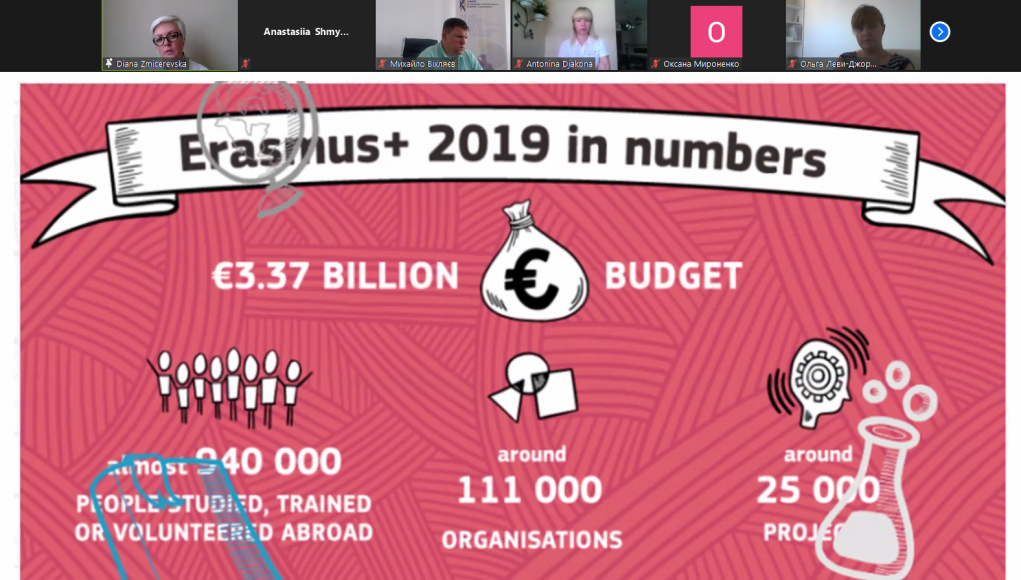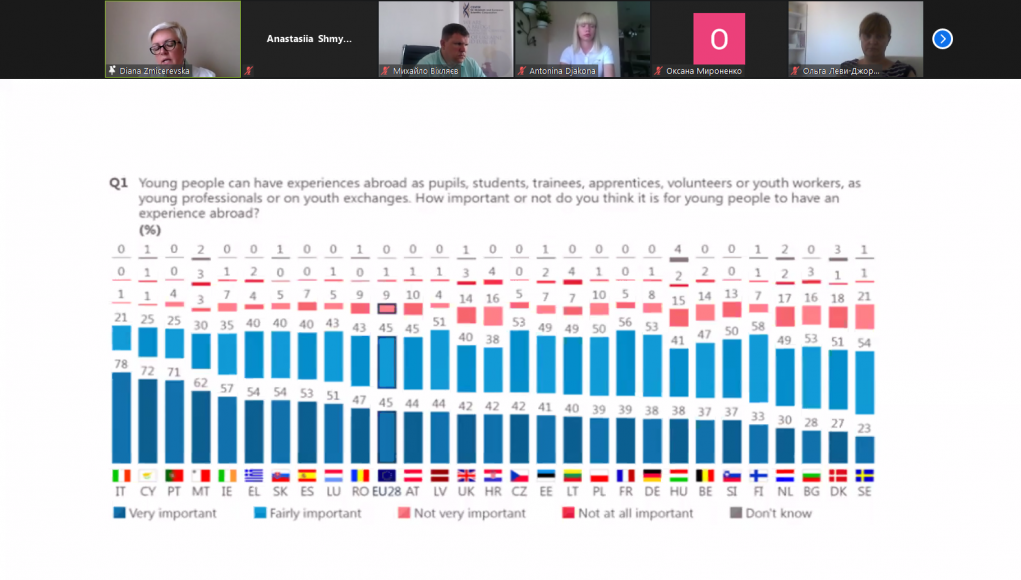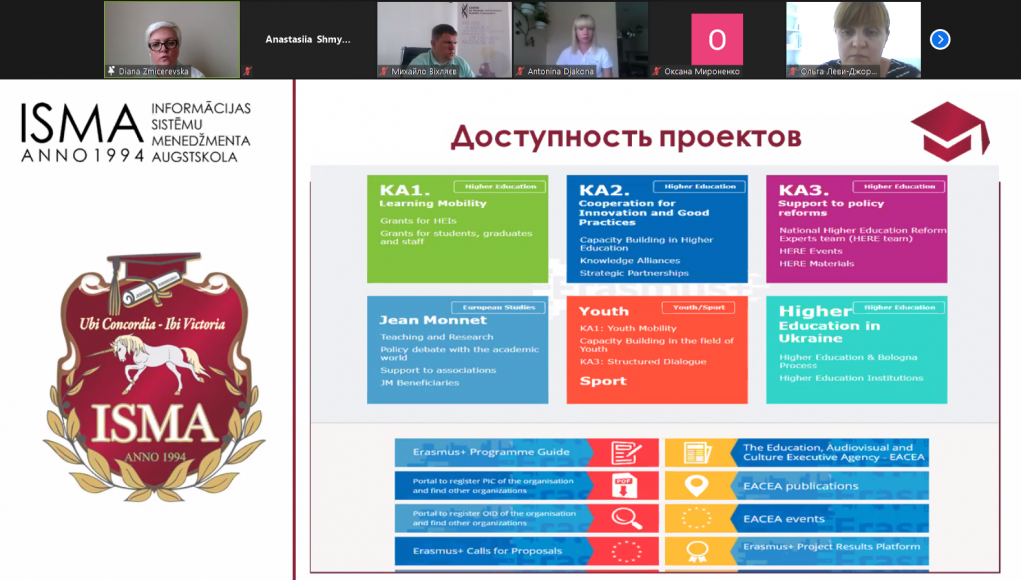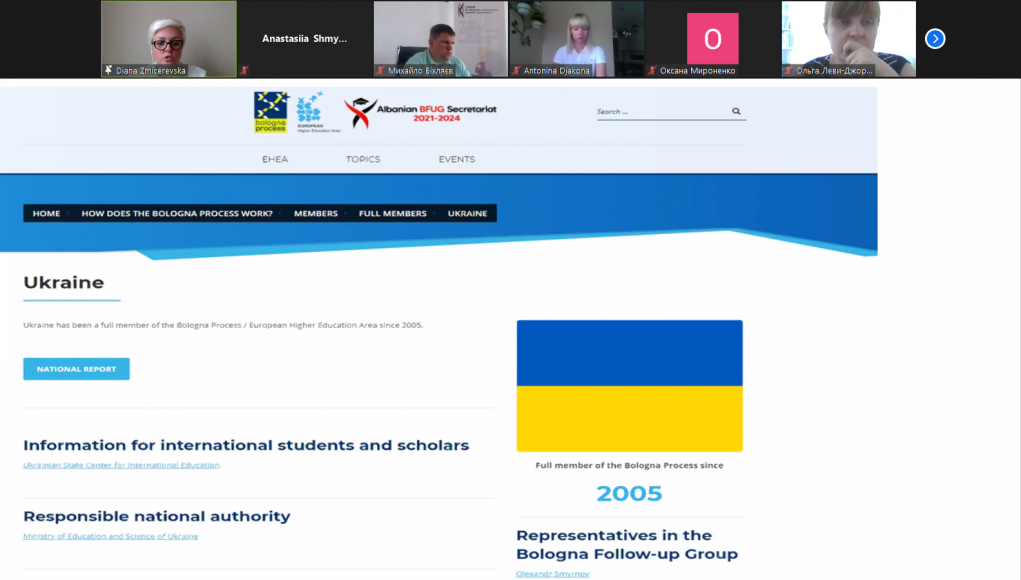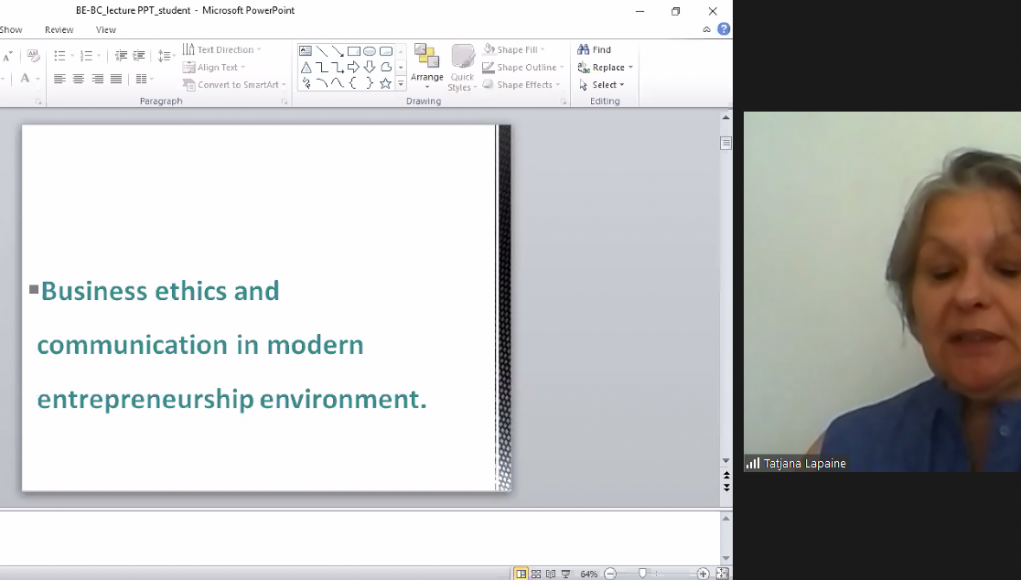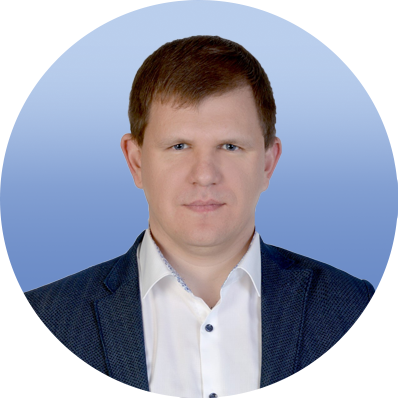
ISMA University of Applied Sciences, under the support of the Center for Ukrainian and European Scientific Cooperation, organized ZOOM lectures within the scientific and pedagogical internships.
Vikhliaiev Mykhailo Yuriiovych, Doctor of Law, Professor, Director of the Center for Ukrainian and European Scientific Cooperation, opened the event. He welcomed all the participants of the scientific talk and highlighted the importance and significance of international relations for the development of science, the gain of new experience and improvement of personal skills and expertise.
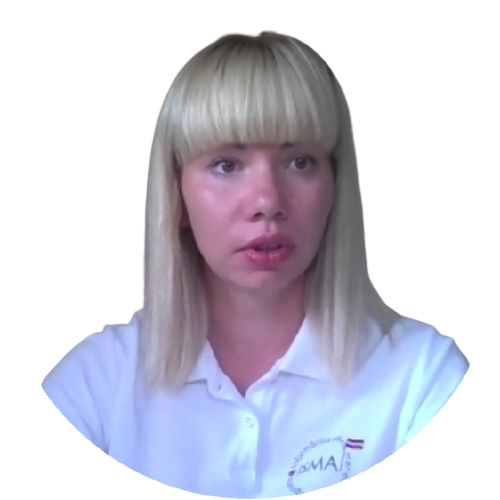
Antonina Diakon, Dr.oec., Vice Rector for Development and Innovations, Head of the Department of Marketing, a moderator of the event, controlled that all arrangements would go perfectly.
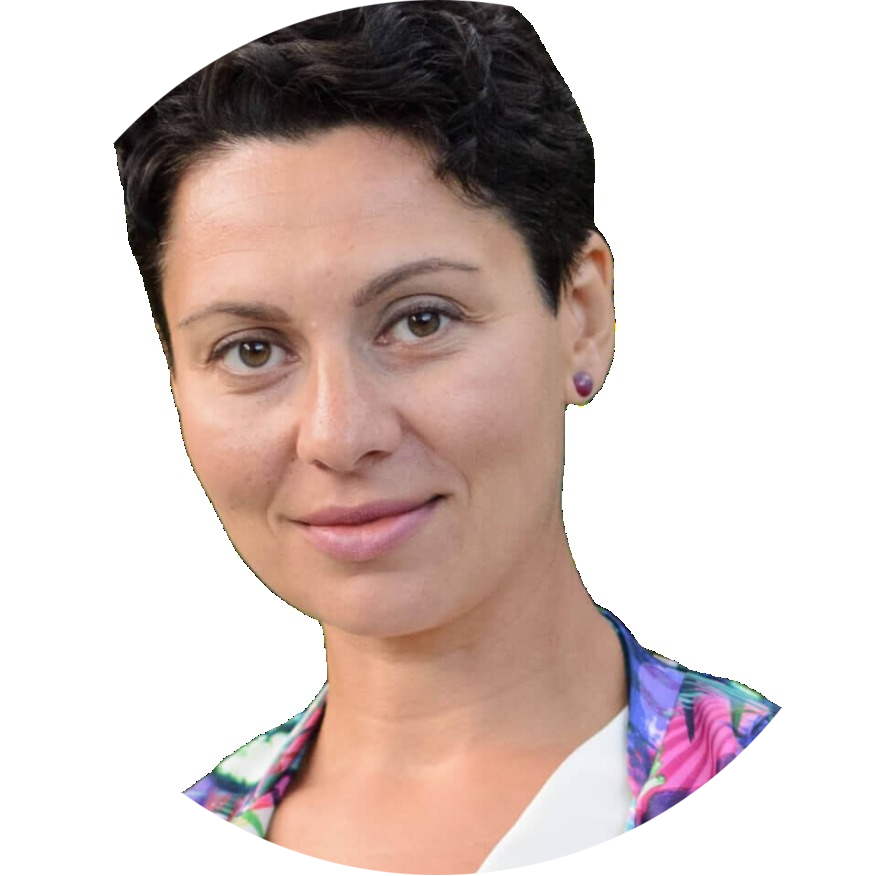
Subsequently, Jevgenija Dehtjare, Dr.oec., Vice Rector for Academic Affairs ISMA University of Applied Sciences, took the floor. She presented the lecture “Strategic approach to remote learning – the application of the EU experience”. Distance learning in Europe emerged in the XVIII century together with postal communications. The advent of the telegraph, telephone, radio and television brought about study opportunities. However, some of the mentioned inventions didn’t guarantee students’ feedback. The new era of distance learning began in the late 1980s when personal computers passed into generic usage. In Ukraine, distance learning appeared in 2004 when the Ministry of Education and Science of Ukraine issued the relevant regulations. Although distance learning has a long history, it is being modernized that is undoubtedly associated with the world situation. Thus, Dr.oec. Jevgenija Dehtjare elucidated new programs, techniques and methods which can come in handy during distance learning both to teachers and students.

Then, Diana Zmicerevska, Mg. oec., Head of Project Department of ISMA University of Applied Sciences, joined the performance. Her lecture covered an inreteresting topic “Issues of academic mobility, internationalization of scientific research”. The emergence of academic mobility is a major step in education. Participation in the different programs permits students, undergraduate students, candidate or doctor of sciences, scientists to study, teach, join domestic or foreign internships and borrow other experience. Despite the advantages of that sort of education, unfortunately, it has some drawbacks, which Diana Zmicerevska specified, e. g. the age, freedom of movement, money, language, diploma recognition etc.
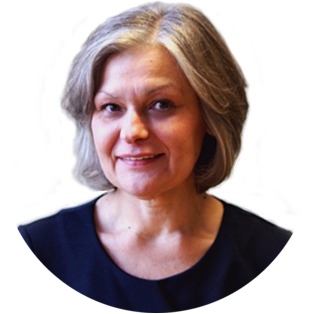
Tatjana Lapaine, Mg.paed., Head of the Department of International Business Communications of ISMA University of Applied Sciences, accomplished the event. She covered the topic “English business communication and ethics”. English is currently widely used, so one needs to know English and have competence in ethics to avoid an awkward situation. Tatjana Lapaine provided us with useful tips and tricks which can come in handy for each of us.
The lectures are available at the link.
We are thankful for your participation and appreciate your positive feedback:
Oksana Harmel: Thank you! It is of great relevance!
Iryna Lazarieva: Thank you! Valuable information.
Lina Bielovetska: I am grateful for the gripping information!
Nataliia Yefremova: Thank you so much!
Viktoriia Tokarchuk: Thank you for the interesting lecture!
Nataliia Bondar: Many thanks!
Tetyana Mykhaylova: Thank you very much!
Inna Moroz: Thank you!!
Nataliia Bondar: Many thanks!
Oksana Harmel: Thank you!
Marianne Kopchak: It is very informative! Thank you!
Boichuk Valentyna: Thank you for the gripping and insightful lectures!
Mykhailo Vikhliaiev: The Center for Ukrainian and European Scientific Cooperation expresses gratitude to dear ISMA partners for exciting lectures! We thank all participants for joining the event!
Iryna Lazarieva: Thank you! It is very interesting!
Yevdokia: Thank you for the incredibly interesting information!

